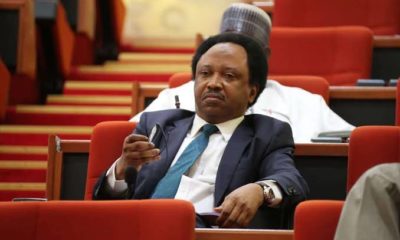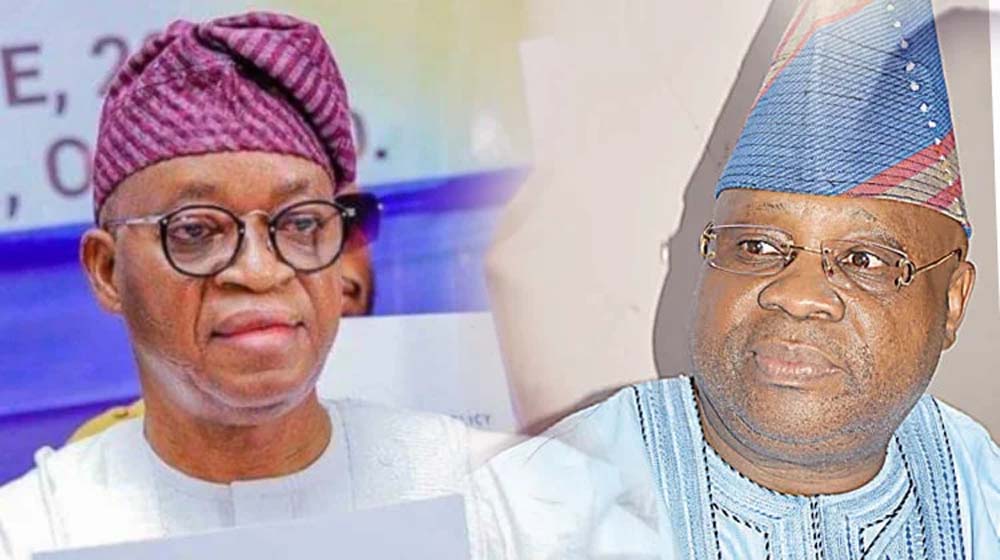Energy
Nigeria’s Next President Must Be Brave About Power Sector – CEO, Century Power
By Edozie Obasi-Eze
The crisis-ridden power sector in Nigeria can be easily solved, only if the incoming administration would give the sector the kind of attention it deserves.
Chief Executive Officer, Century Power Generation Limited, Dr Chukwueloka Umeh, expressed the opinion at an online interactive session with media men.
According to him, the next administration, in Nigeria must from its first day in office declare a national emergency on the power sector.
Read also>>>FCTA gets Shortfall in Allocation, as it disburses N2.6b to area councils, stakeholders
Dr Umeh who also serves as an Executive Director of Nestoil Ltd as well as the CEO of Nesto Aviation Services Ltd., warned that the current problems in the sector would continue, or even get compounded, if the next government fails to deploy professionals to head the ministry of power and its agencies.
He observed that Nigeria’s power sector was beset with weak infrastructure, illiquidity as well as the issue of square pegs in round holes, leaving the country with over 200 million persons with just a meagre 4,000mw.
The former General Electric Company official noted with concern that while Egypt for example, with about half of Nigeria’s population is producing 57,000mw, while Nigeria continues to struggle to produce 4,000 megawatts. He described the situation as embarrassing and criminal.
In his words, “We should all hide our heads in shame as a country. Some years ago, Nigeria produced 5000mw and everybody was celebrating. I was like have these people lost their minds?”
Dr Umeh made it clear that whoever becomes the next Nigerian president must understand the critical importance of the sector, cut bureaucracy and free the sector from undue government interference, except in a regulatory role.
“It is my hope that whoever is the next president will understand that they need to do something drastically different. They need to be brave. They need to show political bravery and do the right thing.
“They need to remove government handouts from the industry and just have government as a regulator. The administration needs to make sure that the person in charge of the power industry is somebody that understands the industry.
“We don’t want just an administrator. We need somebody that clearly understands the industry, somebody like Prof Barth Nnaji who was the minister of power under Goodluck Jonathan; who is a player in the industry.
“He understood the industry well, and he had the motivation to make it work. So we need somebody like that running the industry. Whoever is the president next year, needs to treat this industry as an emergency. Which means they need to remove all the red tapes stopping things being done quickly,” he added.
According to the Aerospace Engineer, Nigeria should go beyond mere consultations, committees and conferences to the execution of the blueprint to revamp the sector.
“We need to quickly remove the government’s fingers from every part of the sector: Generation, transmission and distribution, and have those people who are not doing well either removed or they are set clear timelines for to fix the problem.
“The next administration needs to reduce the regulations that are barring new entrants from coming into the industry,” he added.
According to Dr Umeh, the Century Power Generation Limited has for years been pursuing a Power Purchase Agreement (PPA) with the Nigerian Bulk Electricity Trading Company Limited (NBET) without success despite the ready international funding for its project in the country.
“I can tell you today. We have spent about a year or more trying to get approval to move gas on the existing pipeline. It is one meeting after the other. This thing should take about two weeks to do. It is taking over a year and we go to meetings, you speak English, you generate minutes of meetings and reschedule for another one, just talking and wasting resources.
“So these things need to be made very quick. Remove all the red tape and allow us to do proper business. I tell people it is not rocket science, but even if it is rocket science, we have rocket scientists,” he maintained.
He pointed out that presently, “there are a lot of people in the industry who have no business being in the power industry because they don’t understand the sector.
“There are a lot of supposed experts that when you speak to them for five minutes, it becomes clear that they don’t really know much about the industry.”
In the short term, he disclosed that Century Power would keep pushing to have a power purchase agreement signed and executed by the government, while working on utility scale plants that may not be as large as the 1,500mw Okija power plant owned by the company.
“They are not quite as large as Okija plant. Just about 20 to 100 megawatts to supply directly industrial clusters and Discos, this is what we’ve been working on doing and to make it in such a way that it will be economically viable to us and to the off-takers,” he explained.
Energy
Nigeria’s Gas Output Increases By 2.9%, Reaching 2.29 MSCF

Amid a slight increase in gas production, Nigeria’s oil output experienced a substantial rise in November 2024.
Gas production saw a 2.9% month-on-month (MoM) increase, reaching 2,292,951 million standard cubic feet (MSCF) from 2,292,471 MSCF in October.
However, on a year-on-year (YoY) basis, the growth was minimal, with a mere 0.02% increase in output for the first 11 months of 2024, compared to the same period in 2023.
READ MORE: Tinubu Mourns Ex-U.S. President Jimmy Carter, Celebrates His Legacy
The latest gas report from the Nigerian Upstream Petroleum Regulatory Commission (NUPRC) also revealed a 1.6% increase in domestic gas consumption.
A total of 606,658 MSCF was consumed locally, compared to 596,861 MSCF during the same period in 2023. Gas exports, meanwhile, rose by 6.9%, reaching 829,156 MSCF, up from 775,547 MSCF in the corresponding period of 2023.
This growth in exports continues to play a vital role in bolstering Nigeria’s foreign exchange earnings.
Despite these positive figures, sources close to the Ministry of Petroleum Resources (Gas) noted that oil remains the dominant force in Nigeria’s energy sector, with gas taking a secondary role.
On the other hand, the NUPRC’s oil production report revealed a remarkable surge.
Nigeria’s oil output, including condensates, rose by 13.3% year-on-year in November 2024, reaching 1.7 million barrels per day (bpd), up from 1.5 million bpd in November 2023. Month-on-month, oil production also increased by 10%, from 1.5 million bpd in October 2024.
Dr. Muda Yusuf, CEO of the Centre for the Promotion of Private Enterprises (CPPE), discussed the broader structural dynamics within Nigeria’s economy, highlighting the dominance of the non-oil sector.
In his 2025 Outlook, Dr. Yusuf noted that the non-oil sector contributed 94.43% to Nigeria’s GDP in Q3 2024, while the oil sector accounted for just 5.57%.
“However, the economy is characterized by a paradox of the oil sector contributing an estimated 90% of foreign exchange earnings, while the non-oil sector accounts for about 10%,” Dr. Yusuf said.
“This is a structural shortcoming in our economy which needs to be addressed, as sectors that contribute hugely to GDP have no corresponding contribution to foreign exchange earnings.”
He further emphasized the need to address the challenges faced by the non-oil sector, which include issues related to productivity, infrastructure, funding, and regulatory constraints.
“The policy implication is that more should be done to fix the challenges of productivity and competitiveness of the non-oil sector of the economy,” Dr. Yusuf added
Energy
JUST IN: NNPC Ltd Reopens Warri Refinery

The Nigerian National Petroleum Company Limited (NNPC Ltd) has announced that the 125,000-barrel-per-day Warri Refining & Petrochemicals Company (WRPC) in Warri, Delta State, has become operational.
This is coming about a month after the commencement of operations at the 60,000-barrel-per-day-old Port Harcourt Refinery.
The Group Chief Executive Officer, NNPC Ltd, Mele Kyari, made the disclosure during a tour of the facility on Monday.
ALSO READ: SERAP Urges Tinubu To Direct CCB To Publish President’s, VP’s, Others Assets
A video posted by Channels TV on Monday showed Kyari addressing a tour team, which included the Chief Executive Officer of the Nigerian Midstream and Downstream Petroleum Regulatory Authority (NMDPRA), Farouk Ahmed.
Before the tour commenced, Kyari explained that the inspection aimed to show Nigerians the level of work completed so far.
According to him, although the repairs on the facility are not yet 100 per cent complete, operations have commenced.
He said, “We are taking you through our plant. This plant is running. Although it is not 100 per cent complete, we are still in the process. Many people think these things are not real. They think real things are not possible in this country. We want you to see that this is real.”
Located in Ekpan, Uwvie, and Ubeji, Warri, the petrochemical plant produces 13,000 metric tonnes per annum (MTA) of polypropylene and 18,000 MTA of carbon black.
Commissioned in 1978 and managed by NNPC Ltd, the WRPC was built to supply markets in the southern and southwestern regions of Nigeria.
The mechanical completion of the facility was initially scheduled for the first quarter of 2024, according to the Spokesperson of the NNPC Ltd, Olufemi Soneye.
“Warri should be done by Q1 (first quarter) 2024,” Soneye stated.
The WRPC is one of Nigeria’s four refineries. Others include the old and new Port Harcourt Refining Company in Rivers State and the Kaduna Refining and Petrochemical Company in Kaduna State.
Energy
Dangote Partnership: MRS Urges Nigerians To Insist On N935/Litre Petrol Price Nationwide

MRS Oil Nigeria Plc, a prominent player in the Nigerian downstream oil industry, has implemented a new petrol price of N935 per litre across all its retail service stations nationwide.
The company has also called on Nigerians to monitor and report any outlets that fail to adhere to the new price structure.
Biztellers reports that this is consequent upon an announcement by the President of Dangote Industries Limited, Aliko Dangote, that the Dangote Petroleum Refinery has partnered with MRS Oil and Gas to offer petrol at N935 per litre at retail outlets, following a reduction in the ex-depot price from N970 to N899.50 per litre.
ALSO READ: Dangote Slashes PMS Price To N899.50k
It was gathered that MRS Oil Nigeria Plc has instructed all its outlets to implement the new price immediately, setting up a digital platform and monitoring team to ensure full compliance.
In a statement on Monday night, the company declared, “Petrol is now being sold at N935 at MRS Filling Stations nationwide. If you find any station not following this price, please report it. Call 08009447853 or email: NG-FMKPMGWHISTLEBLOWING@NG.KPMG.COM”
Emphasising the eco-friendly nature of its products, MRS Oil added, “We call on all petrol station owners to join MRS Oil Nigeria Plc in improving the supply chain of our beloved country, ensuring product quality and availability in every corner of Nigeria for the benefit of all Nigerians.”
In Lagos, commuters were seen queuing at MRS filling stations to purchase petrol, with many expressing their gratitude to the Dangote Petroleum Refinery and MRS Oil and Gas, urging other marketers to support the indigenous refinery rather than import off-spec products into the country.
A commuter at the MRS station at Alapere on the Lagos Ibadan Express way, Ibukun Phillips, could not hide her joy as her husband filled up their car.
“I am very happy today. This is a victory for Nigeria,” she said. “The price reduction is the best gift of the season. But beyond just the reduction, we are buying standard, eco-friendly petrol at a lower rate. My husband and I have decided we will only be using MRS from now on because we are confident in the quality of the product and supporting the economy.”
A commercial bus driver, Adio Ajibade described the price reduction as a great relief, especially during the festive season.
“The reduction is a great relief. It will reduce transportation costs and benefit Nigerians. God will continue to bless Alhaji Aliko Dangote,” he said.
A public affairs analyst and university lecturer, Dr. Tunde Akanni, said the collaboration between Dangote Petroleum Refinery and MRS Oil represents a significant step towards improving the affordability, quality, and sustainability of petroleum products in Nigeria.
According to Dr. Akanni, “this move will not only help ease the financial burden on Nigerians but also promote a more environmentally conscious approach to fuel consumption, benefitting both the economy and public health in the long term.”






















